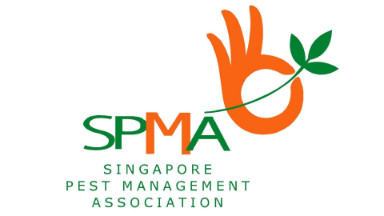Buyers of Pest Control Services
In this section we aim to answer some of the common questions people have about making use of pest control services.
What are considered Pests?
Pests are living things, which are harmful or reduce availability, quality and value of human resources. Pest status may vary according to individual preferences, tolerance levels, society background, environment etc. Pests in urban environments are living things which are continuously present in and around work and living spaces. Some pests are also called vectors because they can transmit diseases and cause serious public health concerns.
Why do we control pests?
Because pests can:
Contaminate homes and workplaces, spread disease and cause allergies;
Contaminate food;
Damage property
Bring about economic loss due to structural repair (ie reduction of agricultural production)
Cause irritation to the occupants
How do pest contaminate food and spread diseases?
Insects, rodents and birds can easily contaminate food and work surfaces with their excretions, hairs and body parts. These are potential pathogens that spread disease. Parasites carried by vector species can also be passed on to humans, causing stress, illness, and diseases.
What to do when I notice some pest activity?
If you notice a common vector (i.e. rats, cockroaches, mosquitoes, flies and fleas that are capable of transmitting diseases) you should alert the people who are responsible for managing these pests to have them eliminated quickly and safely, without harming the environment. If they are not vectors and you can live with their presence, please leave them alone. Remember that we must share our planet Earth with other living things.
Do we have to vacate the premises when treatment is being carried out?
In most cases you don’t even need to leave your house when a pest control treatment is done. You only need to leave the house when insecticidal gassing or misting is involved, in which case you could re-enter the building after just a few hours. Before a service is done, it is best to take some precautions including storing food and kitchen utensils properly, whilst afterwards it is good to wash toys and kitchen appliances before using them again.
What is fumigation?
Fumigation involves the use of a poisonous gas (eg. Methyl Bromide, Phosphine), and as such, it involves stringent safety requirements. The fumigator must be licensed by the National Environment Agency (NEA). Any other form of chemical treatment is not fumigation (ie thermal fogging, misting, spraying, etc.).
Are pest management field staff qualified?
In Singapore, all vector management field staff are required to be licensed or certified by the National Environment Agency (NEA). For additional information on vector control licensing, please visit NEA.
What are the common pests in households?
Mosquitoes, cockroaches, rodents, flies, fleas, termites, ants and more.
Can I get rid of cockroaches at home using a spray?
The household aerosol spray is, at best, a temporary solution. It is not equipped to treat difficult-to-reach areas such as sewer runs, rubbish chutes, manholes or inspection pits where cockroaches settle and breed. Moreover, being an oil-based spray it should not be used on tiled-floors, planted areas or near open flames. Engage a Pest Management Company for sustainable solutions.
How can I assess if the company I am planning to hire is equipped with all the necessary certification?
The National Environment Agency (NEA) has a list of PCO’s which are certified under NEA. Otherwise, you can request the company to provide the necessary certification.
